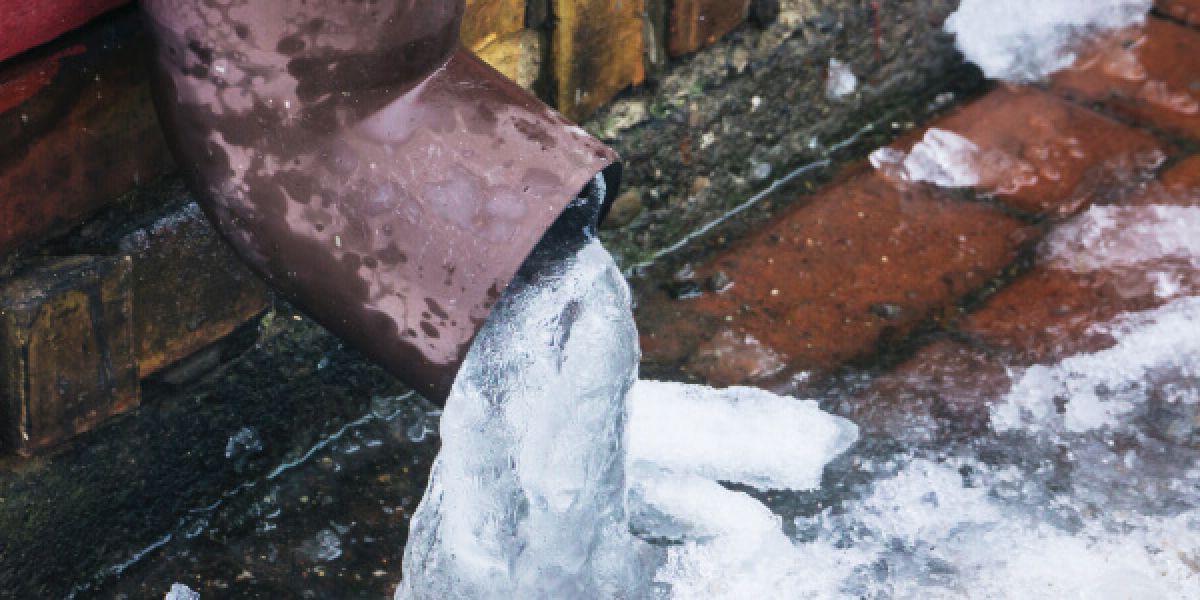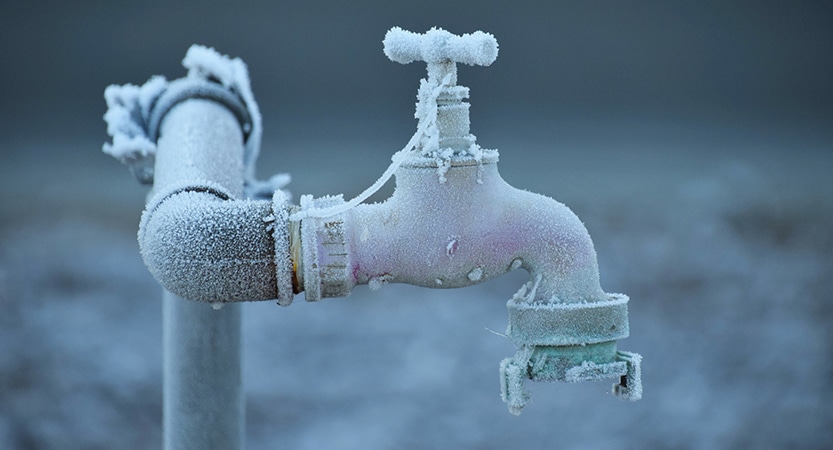Protecting Your Pipes from Cold Weather Issues: Key Tips
Protecting Your Pipes from Cold Weather Issues: Key Tips
Blog Article
Were you looking for information involving Preventing and dealing with frozen pipes?

Cold weather can ruin your plumbing, specifically by freezing pipes. Below's just how to stop it from occurring and what to do if it does.
Intro
As temperature levels decrease, the threat of icy pipelines rises, potentially resulting in expensive repair services and water damage. Comprehending just how to prevent frozen pipes is essential for home owners in cold climates.
Prevention Tips
Insulating at risk pipes
Wrap pipes in insulation sleeves or use warm tape to protect them from freezing temperatures. Focus on pipelines in unheated or exterior locations of the home.
Heating methods
Maintain interior rooms properly heated up, particularly locations with pipes. Open cabinet doors to enable warm air to circulate around pipelines under sinks.
Just how to identify frozen pipelines
Seek decreased water circulation from faucets, unusual odors or sounds from pipes, and noticeable frost on exposed pipes.
Long-Term Solutions
Architectural adjustments
Consider rerouting pipes far from exterior walls or unheated locations. Add extra insulation to attics, basements, and crawl spaces.
Upgrading insulation
Purchase premium insulation for pipelines, attics, and wall surfaces. Proper insulation aids keep consistent temperatures and reduces the threat of icy pipes.
Securing Exterior Plumbing
Garden tubes and exterior faucets
Detach and drain pipes garden hose pipes prior to winter. Install frost-proof faucets or cover outside faucets with protected caps.
Recognizing Frozen Pipes
What creates pipes to ice up?
Pipes freeze when subjected to temperature levels below 32 ° F (0 ° C) for expanded durations. As water inside the pipes ices up, it increases, putting pressure on the pipeline wall surfaces and possibly creating them to break.
Threats and damages
Frozen pipes can result in water supply interruptions, building damage, and expensive fixings. Ruptured pipes can flood homes and create extensive architectural damage.
Signs of Frozen Piping
Recognizing icy pipelines early can stop them from rupturing.
What to Do If Your Pipelines Freeze
Immediate activities to take
If you presume icy pipes, keep faucets open up to soothe stress as the ice melts. Use a hairdryer or towels soaked in warm water to thaw pipes gradually.
Conclusion
Preventing icy pipelines requires proactive steps and quick feedbacks. By recognizing the reasons, signs, and preventive measures, home owners can shield their pipes throughout cold weather.
Helpful Tips to Prevent Frozen Pipes this Winter
UNDERSTANDING THE BASICS: WHY PIPES FREEZE AND WHY IT’S A PROBLEM
Water freezing inside pipes is common during the winter months, but understanding why pipes freeze, and the potential problems it can cause is crucial in preventing such incidents. This section will delve into the basics of why pipes freeze and the associated problems that may arise.
THE SCIENCE BEHIND FROZEN PIPES
When water reaches freezing temperatures, it undergoes a physical transformation and solidifies into ice. This expansion of water as it freezes is the primary reason pipes can burst. As the water inside the pipe freezes, it expands, creating immense pressure on the walls. If the pressure becomes too great, the pipe can crack or rupture, leading to leaks and water damage.
FACTORS THAT CONTRIBUTE TO PIPE FREEZING
Low Temperatures: Extremely cold weather, especially below freezing, increases the risk of pipes freezing. Uninsulated or Poorly Insulated Pipes: Pipes located in unheated areas, such as basements, crawl spaces, or attics, are more prone to freezing. Insufficient insulation or lack of insulation altogether exacerbates the problem. Exterior Wall Exposure: Pipes running along exterior walls are susceptible to freezing as they encounter colder temperatures outside. Lack of Heating or Temperature Regulation: Inadequate heating or inconsistent temperature control in your home can contribute to frozen pipes. PROBLEMS CAUSED BY FROZEN PIPES
- Pipe Bursting: As mentioned earlier, the expansion of water as it freezes can cause pipes to burst, resulting in significant water damage.
- Water Damage: When pipes burst, it can lead to flooding and water damage to your property, including walls, ceilings, flooring, and personal belongings.
- Structural Damage: Prolonged exposure to water from burst pipes can compromise the structural integrity of your home, leading to costly repairs.
- Mold and Mildew Growth: Excess moisture from water damage can create a favorable environment for mold and mildew growth, posing health risks to occupants.
- Disrupted Water Supply: Frozen pipes can also result in a complete or partial loss of water supply until the issue is resolved.
WHY CERTAIN PIPES ARE MORE PRONE TO FREEZING
- Location: Pipes located in unheated or poorly insulated areas, such as basements, crawl spaces, attics, or exterior walls, are at higher risk of freezing.
- Exterior Pipes: Outdoor pipes, such as those used for irrigation or exposed plumbing, are particularly vulnerable to freezing as they are directly exposed to the elements.
- Supply Lines: Pipes that carry water from the main water supply into your home, including the main water line, are critical to protect as freezing in these lines can affect your entire plumbing system.
- Underground Pipes: Pipes buried underground, such as those connected to sprinkler systems or outdoor faucets, can be susceptible to freezing if not properly insulated.
https://busybusy.com/blog/helpful-tips-to-prevent-frozen-pipes-this-winter/

As an enthusiastic reader about Helpful Tips to Prevent Frozen Pipes this Winter, I figured sharing that excerpt was essential. If you enjoyed reading our article if you please consider to share it. I am grateful for your time. Kindly stop by our website back soon.
Call Today Report this page